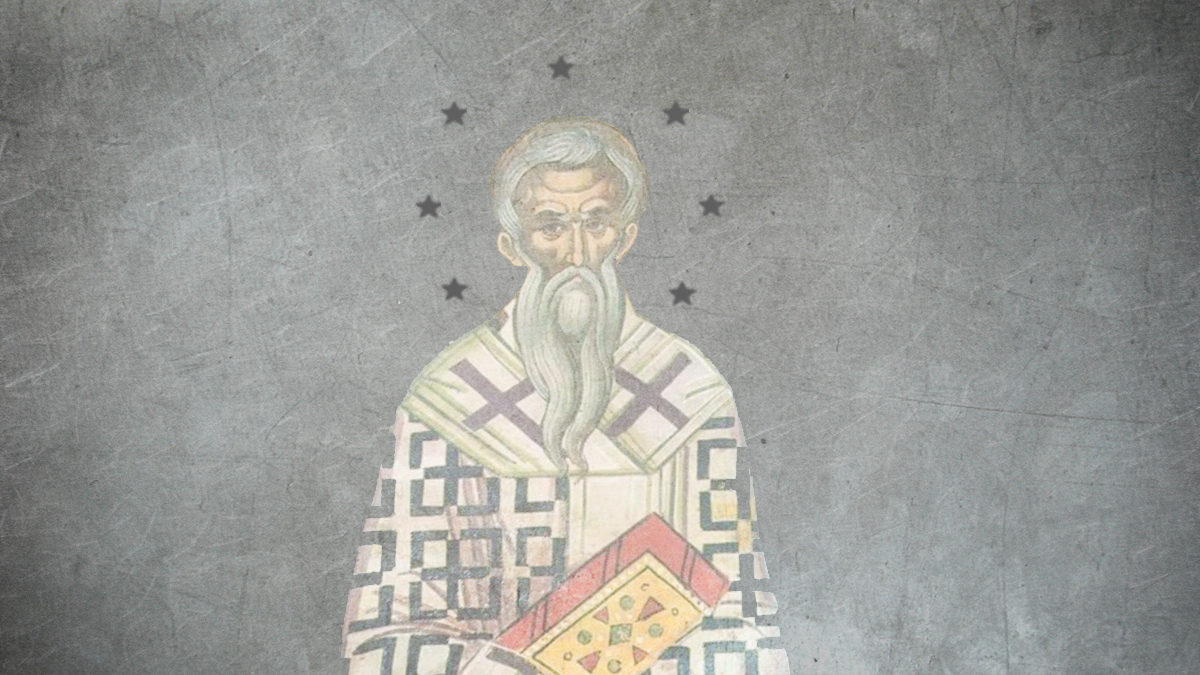
The Father of Hymnody
On December 7, 374, Ambrose became bishop of Milan and thereby became a staunch defender of the Faith against the Arians. Ambrose was born into a prominent Christian Roman family around 340 in Trier (which is in modern Germany). His father was the prefect of the region, but when he died about 14 years later, Ambrose’s mother moved the family back to Rome where Ambrose and his brother studied rhetoric and Greek. At a time when the study of Greek was waning in the Western Empire, Ambrose developed a proficiency in Greek that allowed him to read Plato and Homer and other classical works.
His abilities quickly earned him multiple appointments including the position of governor of Milan around the age of 30. This prestigious appointment came from Emperor Valentinian I. In 303, the political center of the Western Empire moved from Rome to Milan such that Ambrose was serving the region of northern Italy which included the imperial court.
In 374, the Arian leaning bishop of Milan died after 20 years of ecclesiastical leadership. The people heatedly debated who should be the successor for bishop. As governor, Ambrose was called to calm the crowds, and in the midst of the assembly, a voice arose calling, “Ambrose for bishop!” The popular governor was quickly acclaimed by both the Arians and the Trinitarians although he had not yet been baptized (according to the custom of the time). Despite his objections, both the church and the state ratified the decision of the people, and Ambrose had little to do but to acquiesce. Within a week he was baptized and consecrated as bishop on December 7.
He immediately gave his property and inheritance to the church for charitable purposes and began intensive study of Scripture. His ability to read Greek enabled him to read Scripture in the original language (since the Vulgate was not yet finished) as well as the Greek fathers. He dedicated himself to clear preaching of the Word and to pastoral duties.
In line with the Council of Nicaea, Ambrose defended Trinitarian doctrine in his many conflicts with Justina, mother of the boy emperor, Valentinian II. Intent on establishing a place for Arian worship in Milan, Justina insisted that Ambrose turn over one of the basilicas to her personal bishop. Not only did Ambrose refuse, but he and faithful members of his congregation barricaded themselves in the basilica on Palm Sunday while Justina’s soldiers lay siege to the church. One of the gathered parishioners was Monica, the mother of Augustine. As the people remained in the church throughout Holy Week, they fasted and prayed. In addition, Ambrose taught them to sing hymns in the tradition of the East. They sang antiphonally with both men and women singing back and forth. They also sang hymns that Ambrose wrote in simple, straightforward rhymes that taught rich theology.
Justina tried a year later to enforce her Arian bishop into a church by making it a capital crime to inhibit Arian worship. Ambrose publically declared, “If you demand my person, I am ready to submit: carry me to prison or to death, I will not resist; but I will never betray the church of Christ. I will not call upon the people to protect me; I will die at the foot of the altar rather than desert it.” Justina backed down and thus ended the focused attempt of those in power to enforce the Arian heresy on the people.
Ambrose brought the singing of hymns to congregational worship and established what became the foundation of Ambrosian Chant. Hymns like “O Splendor of God’s Glory Bright” and “Come, Thou, Redeemer of the Earth” have instructed countless churches throughout the centuries.
Christward Collective is a conversation of the Alliance of Confessing Evangelicals. It is supported only by its readers and gracious Christians like you. Please prayerfully consider supporting Christward Collective and the mission of the Alliance.




















 © Alliance of Confessing Evangelicals
© Alliance of Confessing Evangelicals


